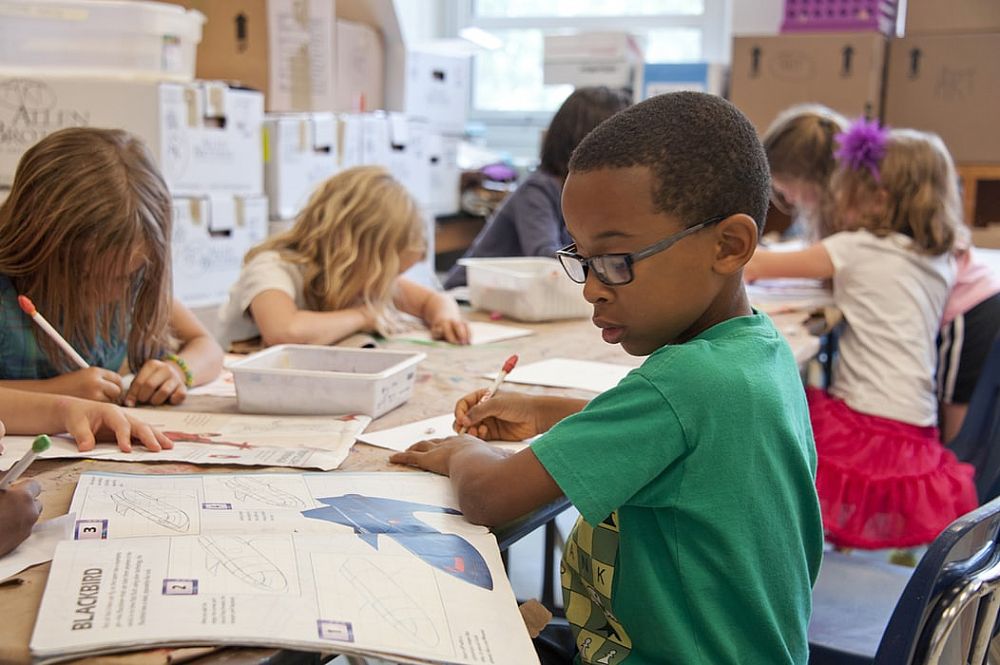Why Language Development is Critical to Overall Child Development

Language development is one of those milestones that parents can’t wait to achieve. And rightly so! Language development is critical to the overall development of children. It is never too early or too late to begin working on your child’s language development. It lays the foundation for communication, understanding feelings, and expressing them. It also supports critical thinking and problem solving and developing and maintaining relationships. Learning a language is a stepping stone to understanding or learning all future knowledge that the child will undertake.
This post was written by our TEFL certification graduate Najia S. Please note that this blog post might not necessarily represent the beliefs or opinions of ITTT.
Communication is very essential to language development and in turn, to child development.
Language need not be words or sentences alone. Initially for your child language is the coos, babbles, and sounds that he or she makes. They are trying to communicate their likes, dislikes, fears, and wants through them. Their crying also is a form of communication by which they tell their caregivers that something is bothering them like a dirty diaper, hunger, or sleep. Parents and caregivers should make use of this crucial time by reading short stories to children, singing songs, responding to their coos, etc. Another great way of language development at an early age is by talking about what you’re doing with your child. For example: when you are giving your child breakfast, tell them “I am making an egg. Do you like eggs? Eggs are white and oval-shaped.” This in turn is increasing your child’s vocabulary. Children who can communicate better with their parents, caregivers, or just the people around them, in general, are less anxious and more adaptive. This early emphasis on language development also makes children more expressive of their feelings as well as an understanding of other emotions. For example: If a child is upset about someone snatching a toy from them, they can speak to their caregiver and express their frustration or talk to the child and ask for the toy back rather than resorting to throwing a tantrum or even worse; hitting. Children who cannot express themselves often use adverse ways of asking what they need as they don’t know any better. They are frustrated with their situation but do not know how to cope with it. This is where early literacy can help children and caregivers work harmoniously to attain their goals.
Also Read: What Does an Effective Lesson Plan Should Include?
Language isn’t just what we speak it also constitutes how/ what we think.
For children to be critical thinkers we must introduce language at the earliest. Parents and caregivers can take children to the libraries, reading at home, listening to audiobooks, and talking/ listening to their children all contribute greatly towards the confidence of a child alongside building their language furthermore. Encourage your child to speak their mind. Some children need more time, motivation, and encouragement to speak while others can be desperate to speak all the time. Regardless of what type of child you have at hand, the important thing to remember is that we should keep criticism to the minimum if a child makes a mistake. Remember they are just exploring and learning. They have not formed any opinions yet. It is also of great importance that they are encouraged to make their own opinions, likes, and dislikes. It would be contrary to being a critical thinker that we impose or somehow make their thoughts flow in the direction that ours do. Listening to your child can be a big boost to their self-esteem and practicing talking will only make them better at the language.
Language helps us connect to other humans and their stories.
Children ages 0-3 years are like sponges. The neurons in their brains are working tirelessly. So, introducing one or even multi languages can be a good idea. Teaching/ learning multi-languages have proven to increase memory and creativity, improve listening skills, and increase attention span in children. Language is what brings us together as a family, society, and a community. If a child can express themselves, orally or in writing, he/she is more likely to be successful at what they’re doing. Such children would have a better relationship with their parents/caregivers, peers, teachers, and generally whoever they meet. Eventually, these children would grow up to be adult individuals who, hopefully, would be able to thrive in different environments with different people.
Also Read: Building Confidence in Speaking English in a Non-Native Speaking Country
Early literacy creates a strong foundation for school achievement.
Take time to sing, read, converse, and spend time with your child. It is easy to incorporate language development skills such as the ones mentioned above into your daily bedtime, bath time, or playtime routines. Making this a part of routine helps for the free flow of language development and not a chore to both the parent as well as the child. A child with early literacy or early language development is a happier, healthier, and more confident child physically and emotionally.
Do you want to teach English abroad or online? Take a TEFL course!
Apply now & get certified to teach english abroad!
Speak with an ITTT advisor today to put together your personal plan for teaching English abroad!
Send us an email or call us toll-free at 1-800-490-0531 to speak with an ITTT advisor today.
Related Articles:
- The How-To Guide to Prepare for Your Teaching Job Abroad
- Two Traveling Teachers Share What It's Like Teaching English Abroad as a Couple
- Guide to Writing a TEFL Resume That Will Get You Hired
- Top 10 Places to Take Your TEFL Course in Spring
- 8 Important Tips For Good Classroom Management
- 6 Steps To Becoming a More Confident Teacher



